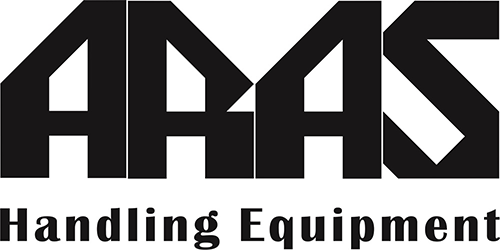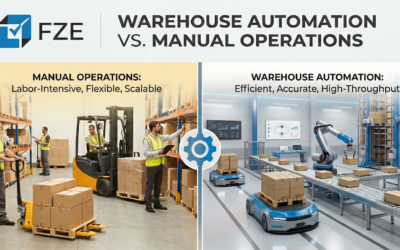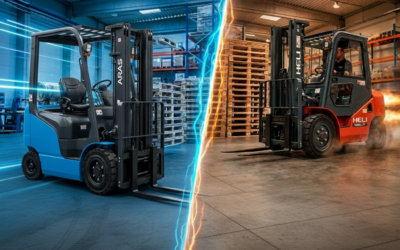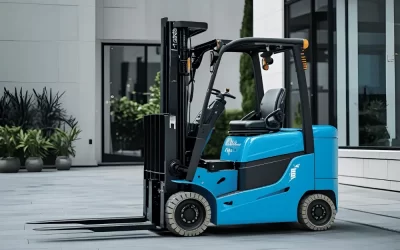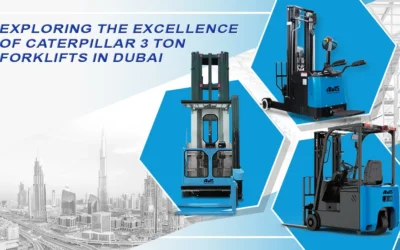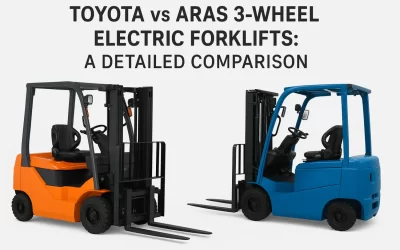A manual forklift truck is a simple, cost-effective tool for lifting and moving heavy loads. Unlike powered forklifts, it operates using human effort and a hydraulic pump. It is widely used in warehouses, retail stores, and manufacturing units. This guide covers everything you need to know about manual forklift trucks, including features, benefits, uses, and maintenance tips.
What is a Manual Forklift Truck?
A manual forklift truck is a hand-operated lifting device designed to move and stack materials. It has a hydraulic pump, sturdy forks, and a steering handle for maneuvering. Since it requires no fuel or electricity, it is an eco-friendly and budget-friendly option for material handling.
Key Features of Manual Forklift Trucks
Manual forklift trucks have several features that make them reliable and easy to use:
- Hydraulic Lifting System – Lifts loads using a simple hand-pump mechanism.
- Strong Steel Frame – Built for durability and heavy-duty use.
- Compact Design – Ideal for tight spaces like warehouses and retail stores.
- Adjustable Forks – Fits different pallet sizes and load types.
- Load Capacity – Can lift between 1,000 to 5,000 pounds, depending on the model.
Uses of Manual Forklift Trucks
Manual forklift trucks are versatile and widely used across industries:
- Warehouses – Move pallets and stack goods efficiently.
- Retail Stores – Transport products from storage to shelves.
- Manufacturing Units – Shift raw materials and finished products.
- Construction Sites – Move light construction materials and tools.
- Logistics Centers – Load and unload goods from delivery trucks.
Benefits of a Manual Forklift Truck
Investing in a manual forklift truck offers several advantages:
- Cost-Effective – More affordable than electric or fuel-powered forklifts.
- Low Maintenance – No engine or battery, reducing maintenance costs.
- Eco-Friendly – Produces no emissions, making it a green option.
- Easy to Use – Requires minimal training for operation.
- Great Maneuverability – Ideal for narrow aisles and small spaces.
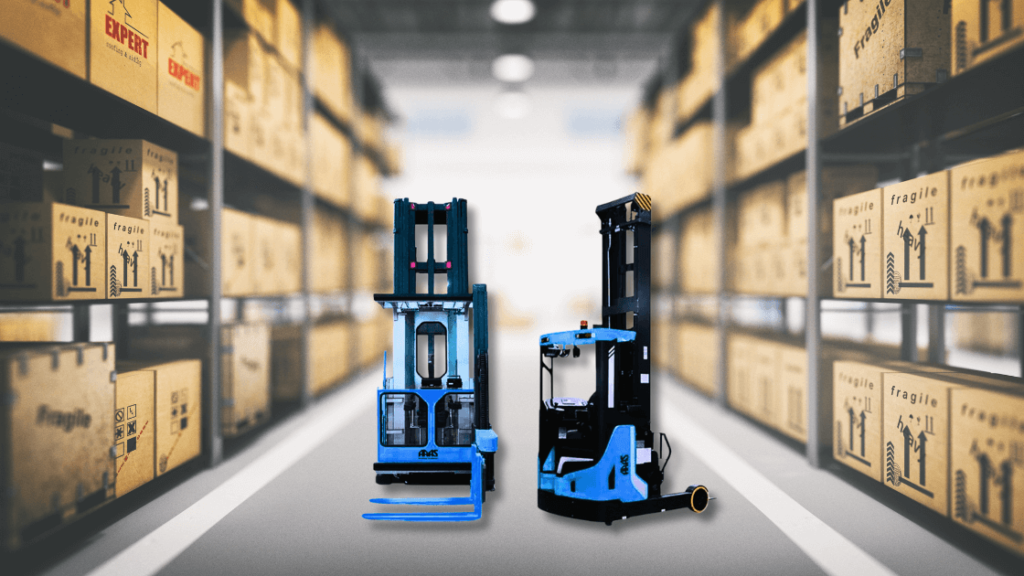
How to Operate a Forklift Truck Safely
Following safety guidelines is essential to avoid accidents. Here’s how to use a manual forklift truck properly:
- Inspect Before Use – Check the hydraulic system, forks, and wheels.
- Position the Forks – Adjust to fit the load securely.
- Load the Forks – Ensure the load is balanced and stable.
- Pump the Handle – Raise the forks to the desired height.
- Move Carefully – Use the steering handle to guide the truck.
- Lower the Load – Slowly release the hydraulic pressure.
- Store Properly – Keep the truck in a safe place after use.
Maintenance Tips for a Manual Forklift Truck
Regular maintenance helps extend the life of your manual forklift truck. Follow these tips:
- Inspect Regularly – Look for wear and tear on forks, wheels, and hydraulics.
- Lubricate Moving Parts – Prevent rust and ensure smooth operation.
- Clean After Use – Remove dirt and debris to prevent damage.
- Check Hydraulic System – Fix leaks and replace worn-out components.
- Replace Worn Parts – Keep the truck in top condition by replacing faulty parts.
Common Mistakes to Avoid
Avoid these mistakes to ensure safety and efficiency:
- Overloading the Truck – Exceeding capacity can cause damage and accidents.
- Skipping Maintenance – Leads to breakdowns and costly repairs.
- Improper Loading – Unbalanced loads increase the risk of tipping.
- Unsafe Maneuvering – Moving too fast or making sharp turns can be dangerous.
- Ignoring Inspections – Always check the truck before use.
Conclusion
A manual forklift trucks is a must-have tool for businesses that need an affordable and efficient way to handle materials. With its durable design, low maintenance, and ease of use, it offers a practical solution for warehouses, retail stores, and industrial operations. By following proper safety practices and regular maintenance, you can ensure smooth operations and extend the lifespan of your equipment. Investing in a manual forklift truck is a smart move for any business looking to improve productivity and streamline material handling processes. Contact Aras Handling Equipment in UAE today!
